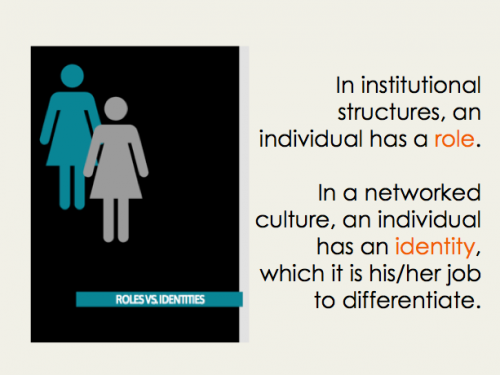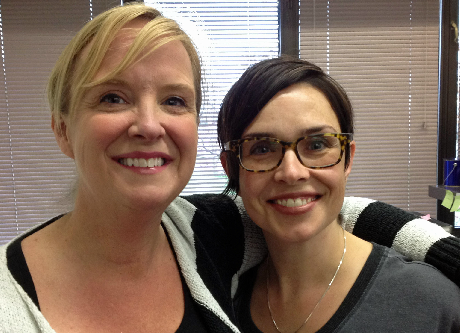I have this Word doc on my laptop. I use it mostly on planes.
It’s a to-do list I can’t actually access daily as it’s not on my work computer. It’s less a bullet journal than an every-few-weeks-or-months enforced offline focusing tool. In it, I organize the overall long-term arc of the things I’m doing – the seasonal tire change appointments that need making, the talks and travels and invoices, the childcare communications and dentist appointments, the house insurance and taxes and blog post ideas all jumbled in together, the research and review deadlines I need to keep track of. Each bit has a section, mostly disconnected notes, copy-pastes of links. Thought outtakes. Things I might need someday.
The Writing and Reviews sections – the academic stuff, the creative stuff – trailed off a year ago to a full stop.
There are no accompanying quit lit notes, even in the privacy of the Word doc. I didn’t quit. But I went dark because I didn’t know where I belonged or where I was going, and I had nowhere to direct the words.
***
A year ago, the staff job I’d had at UPEI since before the end of my Ph.D ended. I lost my job. It was no surprise – one of the two programs I was managing needed to be closed, and I recommended as much – but it was quick. And weirdly final.
I was lucky enough to turn one of my side hustles into a short term contract with the government, and I taught sessionally, as ever. I applied for two tenure-track jobs at my institution…and one or two elsewhere. I got one of the elsewhere interviews, but one of their long-term sessionals got the job – which is good and right. I did not get a local interview. I taught a #DigPed lab and I did talks through the summer and I pitched workshops and managed to lead a volunteer committee that put on a province-wide #LearnDay for PEI and I tried very hard to act chill, like a professional in a perfectly normal transition. Or hiatus. Or something.
But I could not write. Not a word of it. I was 45 years old and unemployed, without a pension, seven years after having put myself in debt to start a Ph.D in order to be more employable here in the narrow professional horizons of this small town. (Don’t laugh. I didn’t know better.) I felt like I’d spent seven years gaslighting myself.
I understood I was a fool. I figured I better not out myself as a fraud, too: the one thing still going for me was the privilege of a network-based reputation that got me invitations (and plane trips on which I could break out my Word doc).
If I said out loud that I was basically, finally, fully uncoupled from the academy, would I be tanking that too?
Reputation is hard to eat, but people sometimes do pay well when they fly you far away to talk. So I shut up. My precarity is generational. We had to buy my mother an apartment last summer, due to a combo of crap circumstances – lifelong renter, landlord moving in, housing crisis in the city – and bad timing. I had enough money squirrelled away from speaking gigs for a down payment on a clean little place for her. I was proud of that. I shut up.
In the fall, I went back to the university to a staff job I like. I thought I’d write but I didn’t.
And then the other academic job I’d applied to? They called.
***
Starting July 1, I will be Assistant Professor of Online Pedagogy and Workplace Learning at the University of Windsor. In Ontario. Right across from Detroit. Totally NOT PEI. Totally cool, though.
Dave signed a contract for work there this past week, as interim Manager of an, erm, Medical Education program. We sold our house. We got our financing on a new house last night. It’s an unfortunate minty-Kermit green but…everything we need. It all still feels vaguely surreal to me, but…everything keeps working out.
People in Windsor seem wonderfully friendly. I am excited to do the job. I get a research fund: I haven’t even had access to a travel fund for years. I GET A PENSION. I GET A PENSION. That deserves to be said twice.
But two weeks ago I was on a plane and I opened that old Word doc and I looked at the blank section where all the ideas used to be. Where I hustled for years trying to turn myself into an academic. Or at least a scholar. And I thought, okay, so now I know where I’m going…I need to start this again. And instead of ideas and itemized plans, all that came out was this big anxious ambivalent jumble that looked like (tl;dr):
I got a tenure-track job (yay!) in a system in which labour is increasingly precarious and even predatory (boo)
I am acutely aware of the privilege and good fortune this turn of events represents
I better do something with that INSIDE the academy to make things different
I’m not sure I know HOW
Actually I will probably do it all completely wrong because nearly thirty years around higher ed has taught me – harshly – that what my mother believed an education meant and would do for me is NOT how academia really operates and this system still replicates and reinforces the precarity of many of us – scholars of colour, LGBTQ scholars, first-generation scholars and scholars without wealth to fall back on, scholars with disabilities (especially invisible disabilities?) – and I have an unfailing gift for going about challenging that shit ALL WRONG because tacit rules
I can learn tho
I am getting kinda good at fake it til you make it
I am increasingly uncertain this is how academic stories even *should* end but I am still grateful
Starting over is scary and the last time we made a major move we got our very first house on the same day I went into labour early and Finn died in my arms eleven hours after birth and omg omg omg I can’t breathe and here I am crying on a frigging plane and do not ANYBODY tell me everything always works out okay thank you full stop
You survive and you go forward, if you’re lucky
I got unbelievably lucky this time
So there we are. Here I am, a raw open wound of outrageous fortune and overwhelm and gratitude. Uncertain of what it means to speak from this place of privilege. But tired of being tongue-tied by my own year-long identity crisis.
***
Today I added something to the “Writing” section of that Word doc for the first time in a year.
Write a damn blog post, it says. Spit it out. Start again. Hit ‘post.’
Here it is. Forward.





